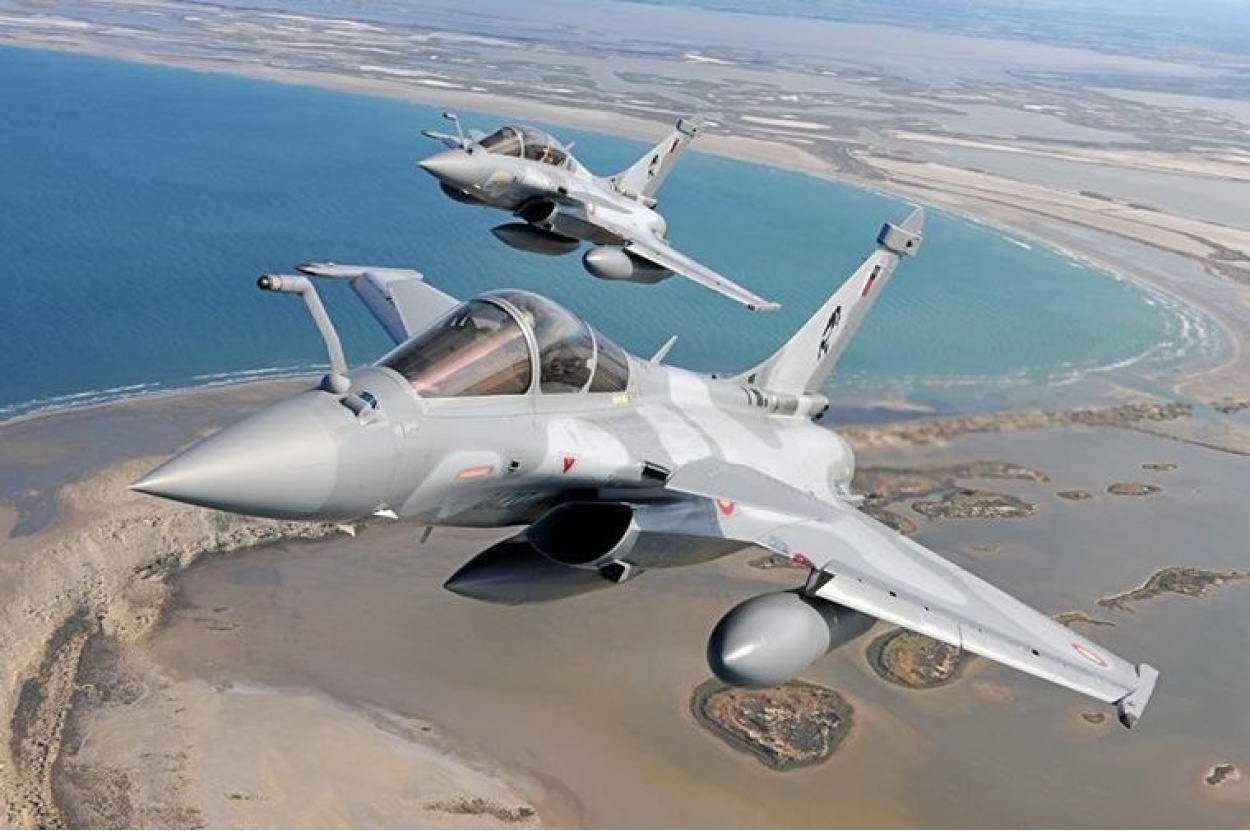Kazakhstan has officially denied considering purchasing France’s Rafale multirole fighter jets and has expressed its inclination to buy the Russian-made Sukhoi Su-30SM aircraft, citing a more favorable price-to-quality advantage.
Media reports recently suggested that Kazakhstan and Uzbekistan might go for a Rafale acquisition following the visit of French President Emmanuel Macron to the two nations earlier this month.
While both countries are in the process of modernizing their militaries, reports now say they might find the “expensive” and “complex” plane beyond their financial means. This is besides the ensuing and tedious overhaul of their logistical, technical, and training processes that are largely still based on the Russian defense-industrial model in the post-Soviet space.
Macron’s Visit to Kazakhstan & Uzbekistan Sparked Speculations
Macron visited Kazakhstan on November 1 and then Uzbekistan on November 2. According to a November 25 report on Scramble, while “bilateral economic ties were high on the agenda,” French government sources said Uzbek officials “expressed an interest in purchasing 24 Dassault Rafale fighters from France.”
A November 26 La Tribune report was less definitive in claiming Kazakh and Uzbeki interest in the Rafale but rather attributed a potential deal to being pushed by the French side, particularly Dassault.

“According to several corroborating sources, Dassault Aviation has been actively prospecting for several months these two Central Asian countries with which France wishes to deepen its bilateral relations. This was also the whole meaning of Emmanuel Macron’s trip to Kazakhstan and then to Uzbekistan on November 1 and 2,” La Tribune said.
Kazakhstan Lays Queries to Rest
The Kazakhstan Telegraph Agency (KazTAG) quoted Colonel Yerzhan Nildibaev, Deputy Commander-in-Chief of the Air Defense Forces (ADF) and Head of the Main Armaments Directorate during a briefing on Thursday, November 30: “I’ll tell you straight away, I want to disappoint you, no negotiations were held on this issue. There were no such plans. Nice plane, but very expensive. Therefore, we believe that when choosing the question of ‘price-quality,’ we have so far settled on the Su-30 SM aircraft.”
However, some prior Kazakh reports quoted the Ministry of Defense denying the Rafale purchase rumors. “According to the press service of the Ministry of Defense of Kazakhstan, the information spread by La Tribune doesn’t reflect reality,” Kursiv reported.
Interestingly, La Tribune’s report itself played down the chances of Kazakhstan buying the Rafale. “The deal with Kazakhstan is a “more distant perspective” as geographical and even political proximity between Astana and Moscow doesn’t help to promote the idea of purchasing aircraft from a Western company,” the newspaper said.
Kursiv quoted a statement from the Elysee Palace saying France desired to support Uzbekistan’s and Kazakhstan’s “pursuit of reforming and modernization and make a contribution into diversification of their partnership relations, support their independence and sovereignty and their aspiration to strengthen their relations with Europe.”
Meanwhile, Rafale’s production line is fully booked for the coming years, with orders from Croatia, Egypt, France, Indonesia, India, and the UAE.
Kazakhstan’s Military Vision
Meanwhile, the Kazakh military has European, Turkish, and Chinese systems, along with Russian platforms, both operational and planned, in its inventory.
A quick look at its war wares and acquisition programs as a part of its modernization efforts suggests an effort to diversify its arms sources. This is determined by each country’s core competency in a particular military platform and the relevant defense technology.
Commander-in-Chief of the Air Defense Forces of the Armed Forces, Dauren Kosanov, first pointed to the Airbus C295 transport aircraft, two of which it received in March 2013, with some additional deliveries taking place subsequently. In March 2019, Astana’s Border Service signed another contract for another unit, which increased the total C295 fleet to nine aircraft.
“New transport and combat helicopters Mi-35 and Mi-171Sh were received. By the end of this year, another Tor-2M battery is scheduled to arrive. By early next year, we will be equipped with six Su-30SM aircraft, which is the best multi-role combat aircraft in the world, a Tor-M2K air defense system battery, and an A-400M military transport aircraft,” Kosanov added.
KazTAG added that Kazakhstan has Chinese Wing Loong-1 UAVs, Turkish Anka, and Israeli reconnaissance drone Skylark. “The experience of armed conflicts in recent decades clearly demonstrates the increasingly growing role of unmanned aerial aircraft and, as a result, the use of new methods of warfare,” Kosanov said.
- The author can be reached at satamp@gmail.com
- Follow EurAsian Times on Google News




